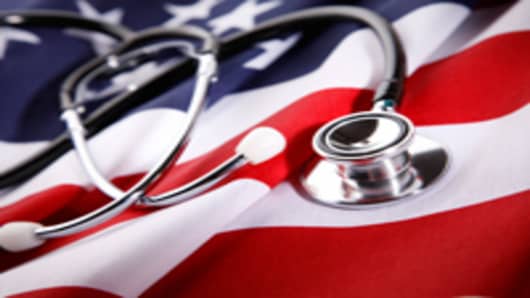The Supreme Court of the U.S. is undertaking one of its most controversial and far-reaching debates in many years with its deliberation over the Patient Protection and Affordable Care Act, with health-care spending impacting almost 20 percent of the nation’s gross domestic product. Like most other business people who run health-care-focused businesses, I am already thinking about what might happen to our company, Pure HealthyBack, once the Supreme Court has its say.
On one hand, if the Justices strike down the law and it is unable to go into effect, I expect to operate under the status quo until lawmakers figure out that as a country, we still cannot afford the status quo. At our company, we anticipate that there might be a “wait and see” attitude that permeates the medical industry again. This could slow decision making and cause us to have to work harder to gain the attention of leaders who may be reluctant to make decisions before they are clear about the next shoe to drop.
On the other hand, if the Court decides that the individual mandate (with some or all of the other provisions of the legislation) is constitutional and that the law shall go into effect and it’s full steam ahead, it is still far from clear how our country will afford this option, either. Certainly, we will be challenged as a nation to do more with less as more than 30 million uninsured Americans will gain coverage while our doctor base is shrinking. We expect an increased focus on cost containment and rationing.
The good news in this scenario for our company and other providers is that we may have access to more total patients who can afford our treatment through their new health-care benefits. The bad news is that we will be pressured to do more with less and our costs of maintaining the convenience factor for patients would rise.
The U.S. health-care system has been built on a fee-for-service, volume-driven model, instead of using evidence-based treatments that actually make patients better. Patients experience “episodes of illness” and wind up going to the doctor, clinic, or emergency room for treatment. We want to get better NOW. We want instant gratification, and the medical system has accommodated us with cascades of tests (many redundant or unnecessary), more surgeries, more drugs, and more hospital stays, all of which drive up costs without necessarily improving outcomes.
At Pure HealthyBack, our approach is different. We are all about outcomes and evidence-based treatment for one of the largest cost centers within healthcare and the No. 1 reason for missed work days in the U.S. — chronic back and neck pain. We have demonstrated that we can save hospitals, health plans, self-funded employers, and even Medicare hundreds of millions of dollars each year by focusing on getting the patient better instead of ordering more procedures and tests.
If the health-care legislation survives, we anticipate growth in telemedicine, home health care, and what I call “group exams,” where people receive care on designated days at their place of business or community centers as the shrinking physician population makes themselves available for bulk visits. Pure HealthyBack can adapt by emphasizing a localized treatment approach through a scaled down clinic model located directly into a place of business or local community where patients can gain access to our program.
Whether the Supreme Court declares the health-care law unconstitutional or permits it to stand, Pure HealthyBack will continue to work to bring our program to employers and health plans that want to reduce their spending on a very large cost center that is frequently a bastion of wasted dollars.
Great businesses figure out a way to operate successfully in any environment, and I expect Pure HealthyBack will follow that premise and adapt accordingly. It seems to me that bringing better care at lower costs should work successfully in either reality — and that’s what we do best.
_________________________
Jim Evanger is the president of Pure Healthy Back. He has more than (20) years of strategic leadership success within both Fortune 100 and entrepreneurial start-up companies, and diverse experience in the healthcare, medical products, and biopharmaceutical industries.
CNBC and YPO (Young Presidents’ Organization) have formed an exclusive editorial partnership, consisting of regional “Chief Executive Networks” in the Americas, EMEA and Asia-Pacific. These “Chief Executives Networks” are made up of a sample of YPO’s unrivaled global network of 19,000 top executives from 110 countries who are on the frontlines of the economy. The opinions of “Chief Executive Network” members are solely their own and do not reflect the opinions of YPO as a whole or CNBC.


